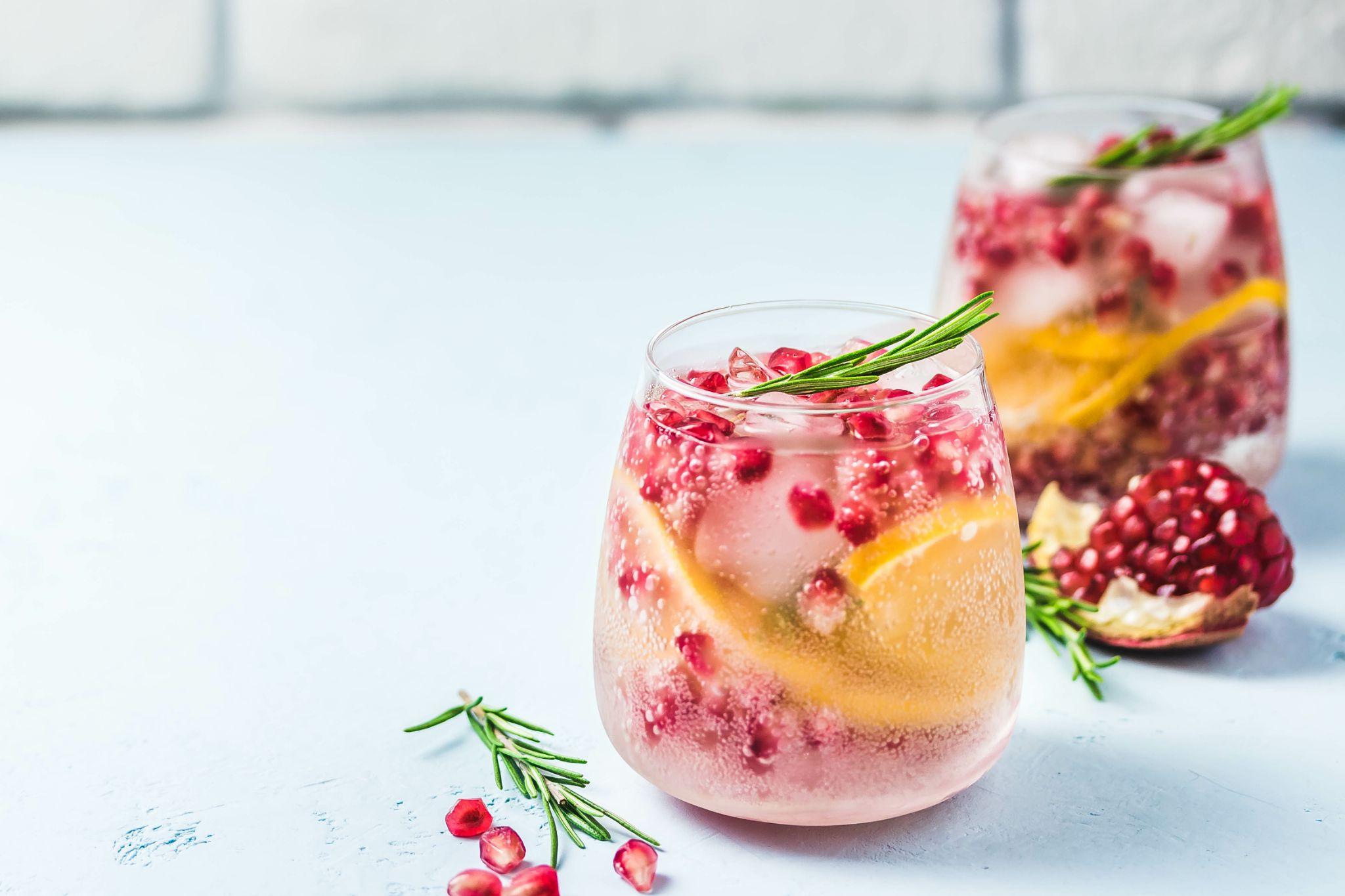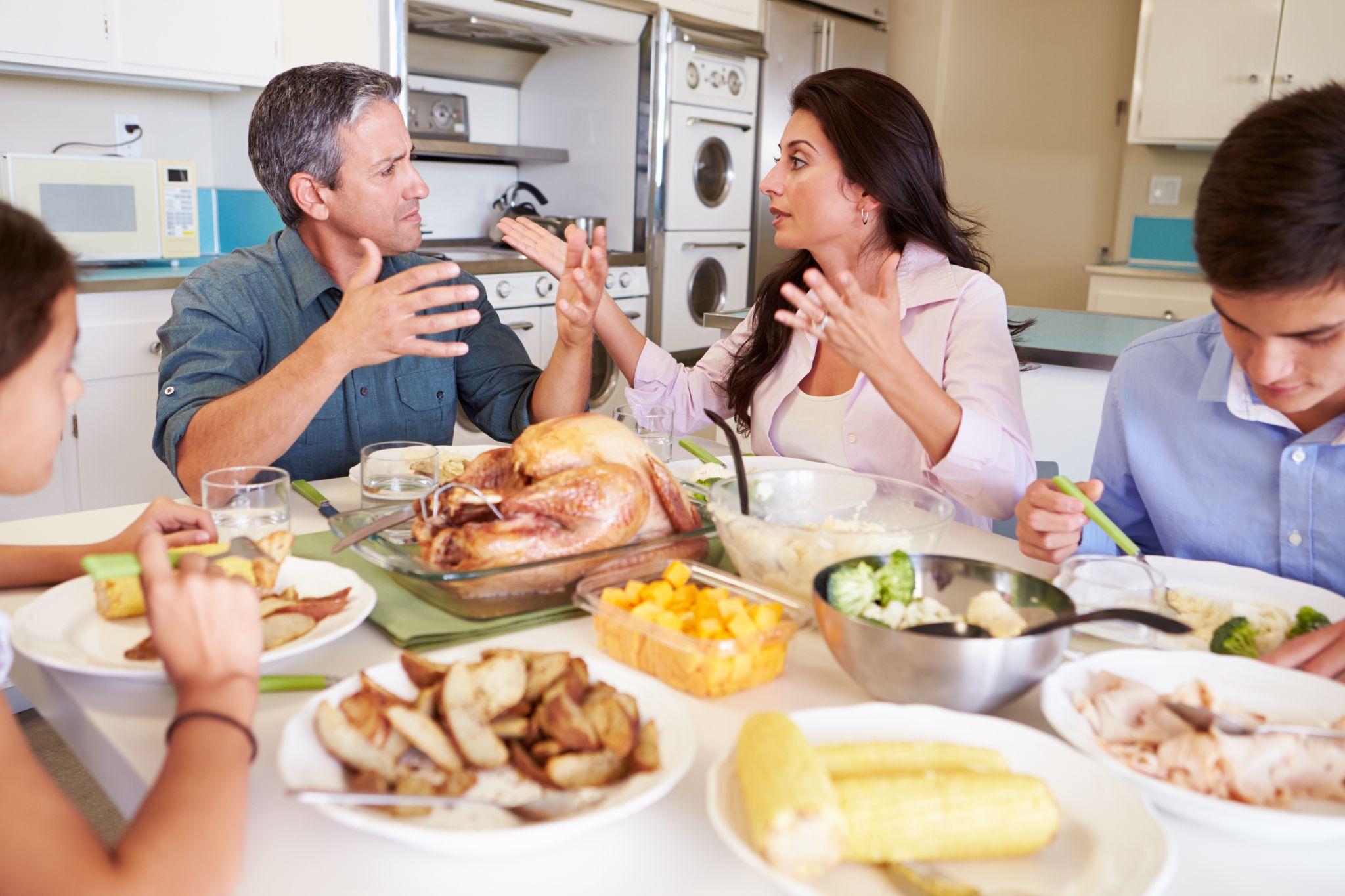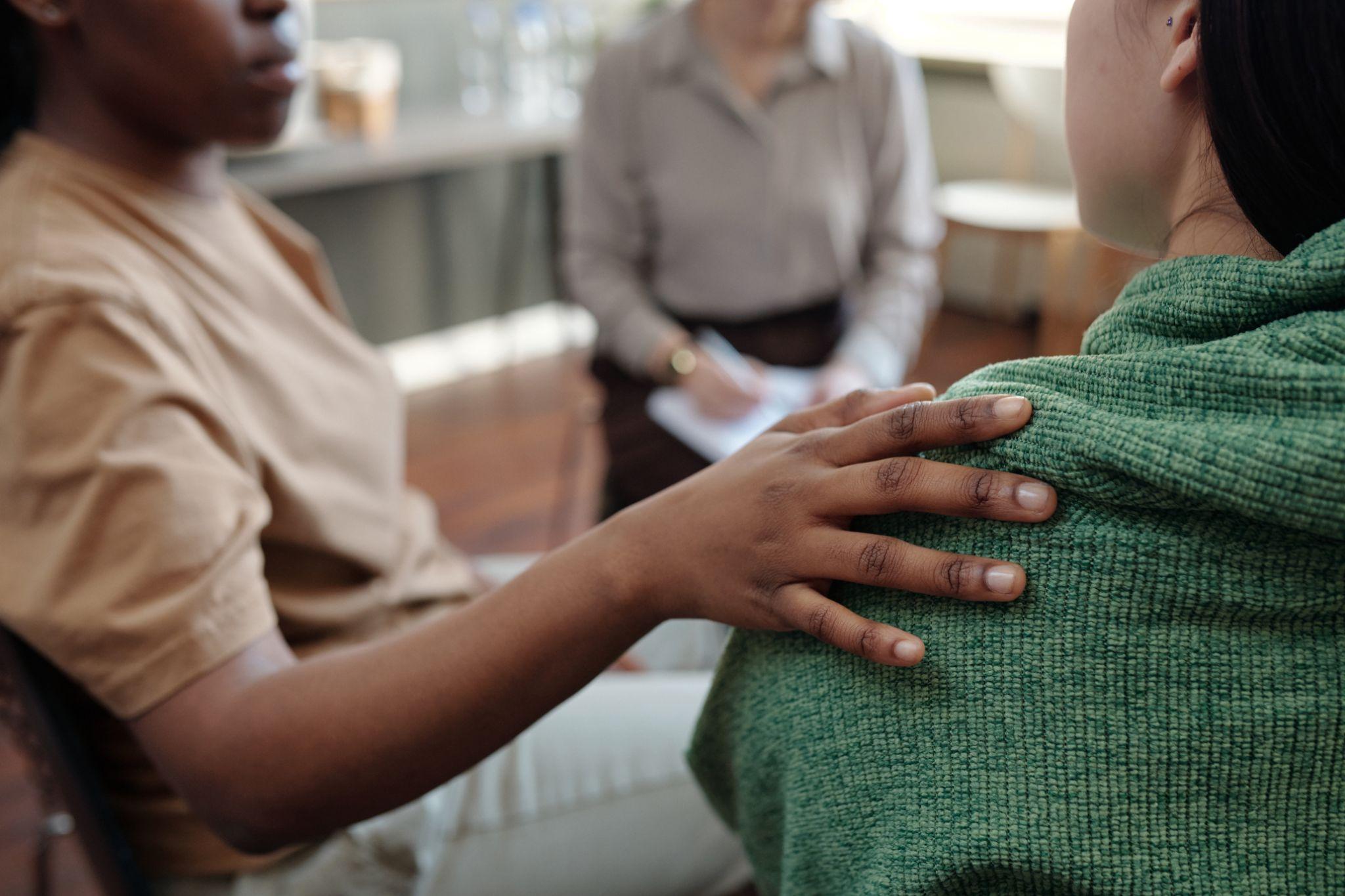
Our Addiction Resources
Navigating the world of addiction and recovery can be overwhelming. We’re here to provide clear, compassionate education and guidance. From practical advice for maintaining sobriety to informational guidance on the long-term effects of substance abuse, our content is a beacon of hope and understanding.
Our Team is Ready are ready to take your call
Call us Today!
or we can call you. Fill out form below
Our Blog

Social Drinking vs. Addiction: Understanding the Difference
Alcohol has become a fixture in many social settings around the world. Whether it’s a celebratory toast at a wedding, a few beers at a sporting event, or a glass of wine during dinner, social drinking is often perceived as a normal part of adult life.
While most people drink without issue, it’s crucial to distinguish between someone who is a social drinker and someone struggling with a more serious drinking problem. By understanding the difference between social drinking and addiction, you can better recognize potential warning signs and make healthier choices.
What Is Social Drinking?
Social drinking is defined as moderate alcohol consumption primarily within social settings. This type of drinking is controlled and does not negatively impact a person’s daily life or responsibilities. A social drinker might have a drink or two during a dinner party, holiday gathering, or after-work meet-up with colleagues.
Social drinking does not typically lead to binge drinking, dependency, or negative outcomes. A social drinker has the ability to control their alcohol intake and does not feel compelled to drink outside of social occasions.
Typical scenarios of social drinking include enjoying a glass of wine during a meal with friends or having a beer at a weekend barbecue. For social drinkers, alcohol may enhance social interactions but does not become a central focus. The defining characteristic is moderation, meaning the amount consumed does not lead to impairment, health issues, or negative behavior.
What Is Alcohol Use Disorder (AUD)?
While social drinking is relatively common, it’s important to distinguish it from alcohol addiction, also known as alcohol use disorder (AUD). AUD is a chronic condition marked by an inability to manage alcohol use, even when it leads to significant negative consequences in one’s life.
It involves a range of behaviors, from problematic drinking to full-blown addiction, where alcohol becomes a priority over all else. Unlike a social drinker, a person with AUD will often experience cravings, increased tolerance, and withdrawal symptoms when they stop drinking.
The distinction between a problem drinker and a social drinker lies in the level of control and the impact on one’s life. A problem drinker, also known as someone with problematic drinking behavior, may not be physically dependent on alcohol but often engages in drinking habits that cause harm to themselves or others.
Problem drinkers may consume large amounts of alcohol at once, drink to cope with stress, or use alcohol to escape reality. This type of drinking goes beyond social situations and indicates potential issues that may lead to addiction.
Recognizing Problematic Drinking
Spotting the transition from social drinking to a drinking problem can be challenging. Problem drinkers may initially appear to engage in social drinking but start to exhibit patterns that indicate more serious issues.
Signs that social drinking may be becoming problematic include an increased frequency of alcohol consumption, using alcohol as a stress reliever, and experiencing a strong urge to drink outside of social settings. Drinking alone, neglecting responsibilities, and engaging in risky behaviors while under the influence are red flags.
For example, someone who was once a social drinker might begin drinking heavily every weekend or turning to alcohol to cope with a stressful work week. While the initial stages may seem harmless, these behaviors can quickly escalate into a drinking problem. Recognizing these patterns early can prevent further complications and encourage timely intervention.
Health Implications
The physical and mental health implications of a drinking problem differ greatly from those of social drinking. A social drinker typically consumes alcohol in moderation and, as a result, faces minimal health risks.
On the other hand, a problem drinker is at a much higher risk of developing serious health issues due to excessive consumption. These include liver disease, cardiovascular problems, weakened immune function, and an increased risk of cancer.
Chronic alcohol misuse can also have severe mental health effects. Excessive drinking can exacerbate anxiety, depression, and other mood disorders. It can interfere with daily responsibilities, strain relationships, and decrease overall quality of life. Problem drinkers often find themselves in a vicious cycle where they drink to cope with stress or emotional pain, only to worsen their issues in the long run.

Prevention and Responsible Drinking
Maintaining healthy drinking habits is essential for preventing addiction. Social drinkers can set personal limits on alcohol consumption, such as having no more than one drink per day for women and two for men, as recommended by health professionals.
It’s crucial to avoid using alcohol as a coping mechanism for stress or negative emotions and to ensure that drinking remains an occasional, socially driven activity. Understanding personal triggers, such as stressful events or social pressures, can also help maintain a healthy approach to alcohol consumption.
Strategies for responsible drinking include setting a limit on the number of drinks, alternating alcoholic beverages with water, and avoiding drinking on an empty stomach. Being mindful of alcohol intake and the reasons for drinking can help individuals maintain control and reduce the risk of developing a drinking problem.
Seeking Help and Treatment Options
If you or someone you know exhibits signs of a drinking problem, seeking help is essential. Treatment options for alcohol use disorder include counseling, therapy, support groups, and medical interventions.
Counseling and therapy sessions provide the tools needed to develop healthier coping mechanisms and address underlying issues contributing to alcohol dependence.
Seeking professional help can feel daunting, but it is a crucial step toward recovery. Early intervention often leads to better outcomes, and many people successfully manage their addiction with the right support and resources.
Get Help for Alcohol Addiction With Lumina Recovery Today
Distinguishing between social drinking and addiction is critical for promoting a healthier relationship with alcohol. While social drinkers maintain moderation, problem drinkers may find themselves increasingly dependent on alcohol. Recognizing the signs of a drinking problem and taking proactive steps toward responsible drinking can prevent serious health and personal consequences.
At Lumina Recovery, we offer outpatient programs and individual therapy to help individuals address problematic drinking patterns and regain control of their lives.
If you or a loved one is facing a drinking problem, reach out to Lumina Recovery to learn how our treatment options can help guide you toward a healthier life.

Should You Wait Until After the Holidays for Rehab?
The holiday season is often marked by celebrations, gatherings, and family traditions and can be a joyous time of year. However, for those with an addiction, it often represents heightened stress, temptation, and potential relapse.
From the pressure to partake in festive activities to navigating strained family dynamics, addiction and the holidays can be an especially challenging mix. It’s understandable to feel that postponing rehab until after the holidays might be a more convenient option, but is it really the best choice for your health and well-being?
The Risks of Waiting Until After the Holidays
Addiction is a progressive condition that doesn’t pause for the holidays. The longer someone delays treatment, the more severe the consequences can become. Emotional health can deteriorate further due to isolation, stress, or feelings of guilt. Physically, continued substance use can exacerbate medical issues, lead to overdose, or even endanger lives.
The holiday season is often full of potential triggers, especially for those struggling with addiction. Social gatherings, holiday parties, and even family dinners may involve substance use or create stressful situations that increase the likelihood of relapse. The holiday spirit often brings pressure to drink, indulge, or mask emotions, making the struggle to stay sober even more challenging.
Holidays often also bring social expectations to be merry and indulge with others, potentially leading to increased substance use. This social environment makes it all too easy to escalate addiction issues, putting recovery efforts further out of reach and risking severe consequences in the new year.
Why is it dangerous to delay rehab during the holidays? Delaying rehab during such a challenging period can lead to further emotional, physical, and social harm. The high-stress nature of the holidays can exacerbate addiction, making it crucial to address it immediately.
4 Benefits of Entering Rehab During the Holidays
What are the advantages of starting rehab during the holiday season? Entering rehab during the holidays offers a combination of focused holiday support, family healing opportunities, and potential financial savings, giving patients a robust start to their recovery journey.
1. Time for Reflection and Resetting
Entering rehab during the holiday season offers tailored support for unique challenges, such as how to navigate Christmas in recovery with strength and resilience. It offers an opportunity to set new intentions and focus on making significant life changes.
Beginning rehab during this period can lead to a powerful, transformative experience that sets the stage for a successful new year.
2. Holiday-Specific Support
Many rehab facilities understand the unique challenges presented by holidays and addiction recovery. They offer tailored programs designed to address these stressors, helping patients build coping strategies to navigate social pressures, family dynamics, and holiday-related triggers.
By focusing on holiday-specific challenges, individuals are better prepared to handle similar circumstances in the future.
3. Family Therapy Opportunities
For many, the holidays are a time when families come together. While this can bring tension, it also presents an opportunity for healing.
Entering rehab during this period often allows for family therapy sessions, which can strengthen bonds, address deep-seated issues, and offer collective support for long-term recovery.
4. Insurance and Financial Benefits
Many individuals have already met their insurance deductibles by year-end, which can make entering rehab more affordable.
By taking advantage of year-end benefits, treatment costs may be reduced, making it a financially practical decision to start rehab now.

Countering Common Excuses for Delaying Treatment
While it may be tempting to delay entering rehab during the holidays, addressing common concerns and misconceptions can help highlight why prioritizing treatment now is crucial.
Concerns about missing holiday gatherings. One of the most common reasons for delaying rehab is the fear of missing holiday traditions or being absent from family gatherings. While this is a valid concern, it’s essential to recognize that prioritizing health and recovery now can lead to more meaningful celebrations in the future.
How rehab facilities make holidays special. Many rehab centers work to make the holiday season feel celebratory and warm. Special events, group gatherings, and festive meals create a supportive community atmosphere, helping individuals feel valued and connected. Spending Christmas in rehab can be a transformative experience, filled with opportunities for growth, reflection, and support.
Sober holidays as a gift to oneself and loved ones. Committing to sobriety during the holidays is a meaningful act of self-care that can benefit not just the individual but also their loved ones. Imagine future holidays spent fully present, engaged, and free from the constraints of addiction. That is a powerful gift worth pursuing now.
3 Practical Steps for Starting Rehab Now
1. Finding the Right Facility
Research different rehab centers to find one that meets your specific needs. Consider those with holiday-focused support, specialized therapies, and a strong community atmosphere.
2. Navigating Insurance and Logistics
Before committing to a program, contact your insurance provider to understand coverage details and how year-end deductibles may affect costs. Many rehab centers have dedicated staff to assist with insurance and financial planning, making the process more manageable.
3. Encouraging Early Action to Beat January Demand
January often sees a surge of individuals seeking rehab after making New Year’s resolutions. By starting treatment now, individuals can avoid waitlists, receive faster care, and gain a head start on their recovery journey.
Make This Holiday Season About Recovery With Lumina Recovery
Addiction and the holidays present unique challenges. Choosing to seek help now offers a transformative opportunity to overcome obstacles and build a healthier future. By addressing triggers and stressors head-on, individuals can find meaningful support and a chance to reset during this reflective time of year.
Lumina Recovery offers residential inpatient programs to provide a structured, immersive healing environment and family therapy to strengthen bonds and facilitate collective healing, especially crucial during the holiday season.
Prioritize yourself and your future by starting your journey today. Contact us now to take your first step toward lasting recovery.

What to Say When Asked Why You Aren’t Drinking
In many social settings, alcohol often plays a central role—whether it’s at a party, a dinner with friends, or a networking event. While drinking is commonplace for some, choosing not to consume alcohol is a personal decision that deserves respect.
Yet, when someone chooses to abstain from drinking, they may be met with curiosity or even pressure to explain their choice. Understanding how to answer when people ask why you’re not drinking can empower you to handle social pressures with confidence.
Understanding the Question
It can be surprising how often people feel compelled to ask why someone isn’t drinking. This inquiry may stem from simple curiosity, social norms, or even a reflection of their own discomfort with abstaining.
Drinking culture is ingrained in many societies, and for some, the expectation to drink can feel obligatory. Societal pressures and traditions around alcohol can lead people to question choices that don’t conform to the norm, but your decision not to drink is entirely valid.
There are many ways to approach these conversations, whether you prefer straightforward, humorous, or diplomatic responses
8 Effective Responses to “Why Aren’t You Drinking?”
When people ask why you’re not drinking, having a few effective responses can make social interactions easier and help you stay true to your decisions.
1. Health-Related Reasons
Health is a deeply personal and often respected topic, making it an effective way to explain excuses for not drinking. By attributing your abstinence to your physical well-being, you can typically steer conversations away from further probing. Some ways to frame this response include:
- Medical Conditions: If you have a medical condition that makes alcohol consumption risky or harmful, you can say, “I’m managing a health condition and need to stay away from alcohol.” Conditions like liver disease, high blood pressure, or even digestive disorders are legitimate reasons to abstain.
- Medications: Many medications interact negatively with alcohol, and explaining this is often sufficient to end any debate. You can say, “My medication doesn’t mix well with alcohol.”
- Fitness Goals: Prioritizing health and wellness can also be a strong motivator. If you’re training for a race, focusing on a new exercise regimen, or simply trying to improve your fitness, a response like, “I’m cutting out alcohol to focus on my health goals,” can help redirect attention.
2. Personal Preferences
Sometimes, it’s as simple as not enjoying alcohol. Society often pressures people into drinking, but personal preference is a valid and powerful reason to say no. You can express this comfortably by saying:
- Not Enjoying Alcohol: If you genuinely dislike the taste or the way alcohol makes you feel, share this honestly. For example, “I don’t drink because I don’t like the way it makes me feel” or “The taste just isn’t for me.”
- Preference for Alternatives: You can pivot the conversation by mentioning your preference for a different type of drink. A simple, “I’d rather have a soda or a tasty mocktail,” can help steer the topic away from alcohol entirely.
3. Designated Driver
Choosing to be the designated driver is a noble and responsible reason to abstain from drinking. It shows concern for your friends’ safety and often earns respect from those around you. Here’s how to use this response:
- Safety Focus: Saying, “I’m the designated driver tonight. I want to make sure everyone gets home safely,” makes it clear that your priority is taking care of those around you. This explanation is both practical and commendable.
- Commitment to Responsibility: Highlighting your role as the driver shows a commitment to being responsible, which others are less likely to challenge. You can say, “I’m making sure we all have a safe ride home.”
4. Past Experiences
If you feel comfortable, sharing how alcohol has negatively impacted your life in the past can be a meaningful way to explain your decision. It may even inspire deeper conversations about making healthier choices. Consider the following ways to communicate this:
- Learning From the Past: You might say, “I had some bad experiences with drinking before, so I’m choosing not to drink now.” This explanation often closes the conversation or prompts support from others.
- A Personal Growth Journey: Emphasizing growth can be powerful. Try saying, “I realized alcohol wasn’t serving me well, so I’ve decided to step away from it.”

5. Honesty About Sobriety
If you’re in recovery or have chosen sobriety, being honest can not only empower you but potentially encourage others to reflect on their own choices. If you’re comfortable with openness, consider these responses:
- Sharing Recovery Status: You can simply say, “I’m in recovery and don’t drink anymore.” This straightforward statement establishes boundaries and communicates the significance of your decision.
- Choosing Sobriety: If you’re not in formal recovery but have chosen to live a sober life, a response like, “I’ve made the decision to be sober; it works best for me,” can be effective. Honesty can lead to meaningful, supportive conversations, though it’s always your choice how much you want to share.
6. Humorous Deflections
Sometimes humor is the best way to diffuse an awkward moment and redirect attention. Lighthearted responses often take people by surprise, make them laugh, and move the conversation along. Here are some examples:
- Playful Jokes: “I’m on a strict no-liquids-that-make-me-dance-on-tables diet.” This response is humorous, playful, and can break the ice without delving into details.
- Deflect With Humor: “I have an appointment with my bed tonight. No alcohol allowed.” Using humor allows you to keep things light without getting too personal.
7. Non-Alcoholic Alternatives
Having a non-alcoholic drink in hand can make you feel more at ease in social settings where alcohol is prevalent. It can also shift focus away from your decision not to drink. Here’s how to approach this:
- Offering an Alternative: If someone asks why you’re not drinking tonight, you can offer an alternative by saying, “I’m enjoying this sparkling water/mocktail instead.” Redirecting attention to your drink helps keep the conversation light and casual.
- Preference for Non-Alcoholic Options: You might simply state, “I prefer non-alcoholic drinks.” This communicates your choice while highlighting that you’re still participating in the social activity.
8. Cultural or Religious Reasons
Abstaining from alcohol due to cultural or religious beliefs is deeply personal and worthy of respect. Sharing this can be a quick and definitive response:
- Cultural Practices: You might say, “I don’t drink because of my cultural traditions,” which can prompt understanding and respect.
- Religious Beliefs: A response like, “My faith doesn’t allow me to drink,” often ends the conversation on a respectful note.
Need Help Maintaining Sobriety? Lumina Recovery Is Here to Support You
Navigating social situations without drinking can be challenging, but with the right responses and confidence, you can stand firm in your decision. Whether you’re choosing not to drink for health reasons, personal preference, or a commitment to sobriety, your choice deserves respect.
Lumina Recovery offers services like outpatient treatment and sober living options to support individuals in recovery, providing tools to handle social pressures and maintain a fulfilling, alcohol-free life.
If you’re ready to take control of your recovery journey, contact Lumina Recovery today for compassionate and personalized care.

How to Handle Unsupportive Family and Friends in Recovery
Recovery from addiction is a personal journey marked by challenges that go beyond individual effort. One of the most significant obstacles many people in recovery face is dealing with unsupportive family and friends. The lack of support from those closest to you can create feelings of isolation, frustration, and even threaten your progress.
Addressing these challenges head-on is vital to maintaining sobriety and fostering overall well-being. By developing strategies to manage these relationships, you can strengthen your recovery support system and cultivate resilience, even in the face of negativity.
1. Understanding the Reactions of Loved Ones
To effectively navigate unsupportive family and friends, it is important to first understand why they might react negatively. In many cases, their lack of support may not come from malice but rather from misinformation, personal struggles, or fear of change.
Addiction is often misunderstood, and loved ones may stigmatize it, which leads to judgmental or dismissive behaviors. They may perceive addiction as a moral failing, which can manifest in unsupportive attitudes.
Understanding these root causes can help you approach unsupportive friends and family with empathy. While their actions may still hurt, recognizing that their reactions are often rooted in fear, ignorance, or personal pain can offer some perspective and reduce feelings of anger or resentment.
2. Communicating Your Needs Effectively
Initiating honest conversations with unsupportive family and friends is a crucial part of rebuilding your relationships. It starts by clearly expressing your needs and boundaries.
Using “I” statements, such as “I need you to understand that my sobriety is important to me,” can communicate your feelings without sounding accusatory or confrontational. Practice active listening during these conversations, giving them space to share their thoughts and concerns without interruption.
When communicating your needs, it is important to remain calm and composed. Approach each conversation as an opportunity to educate and build bridges, even if some of your loved ones remain unsupportive.
3. Establishing and Maintaining Healthy Boundaries
Setting and maintaining healthy boundaries is essential for protecting your recovery journey. This means being clear about what behaviors and interactions you will and will not tolerate.
For example, you might choose to avoid social situations that involve alcohol or drugs, or you might ask family members to refrain from bringing up certain triggering topics. Be consistent and firm in upholding these boundaries, even when faced with pushback.
By protecting your emotional and mental well-being, you are creating an environment that supports your sobriety and reduces the risk of relapse. Enforcing boundaries can be difficult, especially when dealing with loved ones, but it is a necessary step in building a healthy recovery support system.
4. Building a Supportive Network
While some family members and friends may be unsupportive, it is crucial to focus on building a network of people who genuinely care about your well-being.
Seek out individuals and groups who share your commitment to sobriety. If you encounter friends who don’t support you in your journey, focusing on surrounding yourself with supportive individuals can help you stay committed to your recovery.
Attend community support meetings, join therapy groups, or connect with sober friends who uplift and encourage you. Sharing your experiences with others who have faced similar challenges can reduce feelings of isolation and offer practical advice for managing difficult relationships with unsupportive family and friends.
5. Prioritizing Self-Care and Personal Growth
Dealing with negativity from loved ones can be emotionally draining, making self-care and personal growth essential components of your recovery plan. Engage in activities that promote physical, mental, and emotional well-being, such as regular exercise, mindfulness practices, or pursuing hobbies that bring you joy.
Self-care is a necessity for maintaining sobriety and managing the stress that comes with dealing with unsupportive friends and family.
Prioritizing your well-being better equips you to handle difficult interactions and remain focused on your recovery goals. Personal growth also offers a sense of purpose and fulfillment, which can counteract the negativity of unsupportive relationships.

6. Educating Family and Friends About Recovery
Sometimes, unsupportive behaviors stem from a lack of understanding about addiction and recovery. Sharing educational resources, such as books, articles, or videos, can help your loved ones gain a better grasp of what you are going through.
Consider inviting them to attend support meetings or family counseling sessions, where they can learn from professionals and others with firsthand experience.
Educating loved ones about recovery can foster empathy and break down misconceptions that contribute to unsupportive behavior. Even if it does not lead to immediate changes in their attitudes, it can plant the seeds for future growth and understanding.
7. Managing and Resolving Conflicts
Conflict with unsupportive family and friends is often inevitable, but how you handle these disagreements can make a significant difference. When conflicts arise, try to approach them constructively.
Focus on finding common ground, rather than winning arguments. Use reflective listening to show that you hear and understand their concerns, even if you do not agree with them. If a conflict becomes too challenging to navigate on your own, consider seeking professional mediation or counseling to facilitate a productive dialogue.
8. Knowing When to Distance Yourself
Not all relationships can be salvaged, and some may prove toxic to your recovery. Recognizing when a relationship is harming your well-being is a difficult but necessary step. If a family member or friend consistently undermines your sobriety, disregards your boundaries, or adds significant stress to your life, it may be time to limit or even end contact.
This decision is not about giving up on your loved ones, but about prioritizing your health and recovery. Surrounding yourself with positive influences is essential for staying on track.
Take Control of Your Recovery Journey With Lumina Recovery
Navigating unsupportive family and friends during recovery can be one of the hardest parts of maintaining sobriety. By understanding their behavior, communicating your needs, setting healthy boundaries, and focusing on self-care, you can build resilience against negativity and safeguard your progress.
At Lumina Recovery, we understand these challenges and offer support through services like family therapy to help rebuild strained relationships and dual diagnosis programs to address underlying mental health concerns that may be impacted by unsupportive environments.
Reach out to Lumina Recovery today to start building a healthier support network for lasting change.

10 Winter Holiday Mocktail Recipes
The winter holidays bring gatherings, celebrations, and cozy nights, but for those in recovery, navigating these festive occasions without alcoholic drinks can be challenging. Christmas mocktails and other holiday drinks offer a great way to enjoy delicious, festive flavors while staying true to sobriety.
These alcohol-free options also provide significant health benefits, making it easier to enjoy the holiday season without compromising your sobriety and wellness. Whether you’re a loved one supporting someone in recovery or on your own journey, these warm and cold mocktail recipes will add a splash of cheer to any holiday occasion.
Warm Winter Mocktails
1. Spiced Apple Cider Mocktail
A comforting classic, this spiced apple cider fills your home with the warm scents of cinnamon, cloves, and citrus.
Ingredients:
- 2 cups apple cider
- 1 orange, sliced
- 2 cinnamon sticks
- 3-4 whole cloves
- 1/4 teaspoon ground nutmeg
- Optional: star anise for garnish
Instructions:
- In a saucepan, combine the apple cider, orange slices, cinnamon sticks, cloves, and nutmeg.
- Simmer over medium heat for 10-15 minutes, allowing the spices to infuse.
- Strain the mixture and pour into mugs.
- Garnish with a cinnamon stick or star anise if desired.
2. Peppermint Hot Chocolate
Indulge in a creamy hot chocolate with a refreshing hint of peppermint for a winter twist on a favorite treat.
Ingredients:
- 2 cups milk (dairy or non-dairy)
- 1/4 cup unsweetened cocoa powder
- 2 tablespoons sugar or sweetener of choice
- 1/4 teaspoon peppermint extract
- Whipped cream or marshmallows (optional)
Instructions:
- Heat the milk in a saucepan over medium heat.
- Whisk in the cocoa powder and sugar until well combined.
- Remove from heat and add the peppermint extract.
- Pour into a mug and top with whipped cream or marshmallows if desired.
3. Gingerbread Latte Mocktail
Capture the flavors of a classic gingerbread cookie in a warm, comforting latte perfect for the holiday season.
Ingredients:
- 1 cup brewed decaf coffee or coffee substitute
- 1/2 cup milk (dairy or non-dairy)
- 1 tablespoon molasses
- 1/2 teaspoon ground ginger
- 1/4 teaspoon ground cinnamon
- Optional: whipped cream for topping
Instructions:
- Heat milk, molasses, ginger, and cinnamon in a saucepan, stirring until smooth.
- Add brewed decaf coffee and stir well.
- Pour into a mug and top with whipped cream if desired.
4. Hot Mulled Berry Punch
Warm up with this fruity mulled punch, combining rich berry flavors with aromatic spices for a cozy winter treat.
Ingredients:
- 1 cup mixed berry juice (cranberry, raspberry, etc.)
- 1/2 cup apple juice
- 1 cinnamon stick
- 2 star anise
- 3-4 cloves
- Optional: fresh berries for garnish
Instructions:
- In a saucepan, combine the berry juice, apple juice, cinnamon stick, star anise, and cloves.
- Simmer over low heat for 10-15 minutes.
- Strain and serve warm, garnished with fresh berries.
5. Chai-Spiced Coconut Milk
Infused with warming spices, this chai-spiced drink is a creamy, soothing option perfect for chilly nights.
Ingredients:
- 2 cups coconut milk (or preferred milk)
- 1 teaspoon ground chai spice blend (or 1 chai tea bag)
- 1 tablespoon maple syrup or sweetener of choice
- 1/4 teaspoon vanilla extract
Instructions:
- In a saucepan, warm the coconut milk over medium heat.
- Stir in the chai spice blend (or steep the tea bag) and maple syrup.
- Heat gently, stirring occasionally, for about 5 minutes.
- Remove from heat, add vanilla extract, and serve warm.

Cold Winter Mocktails
6. Cranberry Orange Sparkler
Bright and refreshing, this mocktail brings a pop of holiday color and flavor to your celebrations.
Ingredients:
- 1/2 cup cranberry juice
- 1/2 cup orange juice
- 1/4 cup sparkling water or soda water
- Fresh cranberries and orange slices for garnish
Instructions:
- In a glass, combine cranberry juice and orange juice.
- Add ice cubes and top with sparkling water.
- Stir gently and garnish with fresh cranberries and an orange slice.
7. Pomegranate Rosemary Fizz
This mocktail pairs the tartness of pomegranate juice with the aromatic taste of fresh rosemary for a sophisticated sip.
Ingredients:
- 1/2 cup pomegranate juice
- 1/4 cup soda water
- 1 sprig of fresh rosemary
- Ice cubes
- Optional: pomegranate seeds for garnish
Instructions:
- Muddle the rosemary sprig at the bottom of a glass to release its flavor.
- Fill the glass with ice cubes and pour in the pomegranate juice.
- Top with soda water and gently stir.
- Garnish with pomegranate seeds and a rosemary sprig.
8. Frosted Citrus Cooler
Cool and zesty, this frosted citrus cooler offers a bright blend of flavors to awaken your holiday spirit.
Ingredients:
- 1/2 cup lemonade (or sparkling lemonade)
- 1/4 cup coconut water
- Juice of 1 lime
- Crushed ice
- Lime wheels for garnish
Instructions:
- Fill a glass with crushed ice.
- Add lemonade, coconut water, and lime juice.
- Stir well and garnish with lime wheels.
9. Sparkling Winter Berry Mocktail
Celebrate with this fizzy mix of winter berries and sparkling water, perfect for a holiday toast.
Ingredients:
- 1/2 cup mixed berry juice (blueberry, blackberry, etc.)
- 1/4 cup sparkling water
- 1 teaspoon lemon juice
- Fresh berries for garnish
Instructions:
- Pour mixed berry juice and lemon juice into a glass filled with ice.
- Top with sparkling water and stir gently.
- Garnish with fresh berries.
10. Minty Citrus Spritzer
This refreshing drink combines citrus and mint flavors for a cool sip.
Ingredients:
- 1/2 cup grapefruit juice
- 1/4 cup soda water
- 1 tablespoon lime juice
- Fresh mint leaves
- Ice cubes
Instructions:
- Muddle mint leaves at the bottom of a glass.
- Add grapefruit juice, lime juice, and ice cubes.
- Top with soda water and gently stir.
- Garnish with a sprig of mint.
Celebrate the Season With Lumina Recovery
This holiday season, you can enjoy festive gatherings and toast to health with winter mocktails and other non-alcoholic holiday drinks. We understand how challenging it can be to maintain sobriety when alcoholic drinks are often front and center.
At Lumina Recovery, we’re here to support your recovery journey from alcohol addiction through our therapy services, including cognitive behavioral therapy (CBT) and group therapy, to help you build resilience and stay engaged in your sobriety during the holidays and beyond.
Let us support you or your loved ones this holiday season and beyond. Reach out today to learn how we can help you maintain a healthier, substance-free lifestyle.

Family Conflict in Recovery: 6 Tips for a Peaceful Holiday
The holiday season is often associated with joy, family reunions, and celebrations, but for individuals in recovery, it can present unique challenges. Family problems and dynamics often heighten during gatherings, which can lead to stress, anxiety, or even potential triggers stemming from past behaviors or unresolved conflicts.
While the holiday period can be difficult, proactive steps, self-care, and conflict management strategies can help create a more positive experience. By preparing ahead and focusing on your needs, you can protect your recovery journey while fostering healthier family interactions.
1. Understand Family Triggers
Navigating family stress and addiction recovery during the holidays often means facing past triggers. Triggers are anything that provokes a strong emotional reaction, potentially leading to distress or relapse. Common family triggers can include past arguments, unresolved tensions, critical remarks, or interactions with family members with drug addiction issues themselves.
To begin managing these triggers, it is crucial to identify them. Reflect on past gatherings and pinpoint what often causes negative emotions.
For example, is it a certain topic of discussion, a specific person’s behavior, or even the overall environment? Once identified, you can mentally prepare yourself. Consider developing a strategy for dealing with these triggers, such as planning to leave the room, using breathing exercises, or bringing a supportive friend or ally along for encouragement.
How can you handle holiday gatherings when family members are triggering?
One approach is to have a list of calming techniques ready. These can include grounding exercises like focusing on a physical object, counting backward, or mentally rehearsing positive affirmations. By maintaining self-awareness and preparing in advance, you can better control your reactions and protect your well-being.
2. Establish Boundaries
Boundaries serve as a shield, protecting your emotional and mental health during family interactions. Clear and respectful boundaries let others know your limits while asserting what you need to feel safe and respected. Communicating boundaries, however, requires care and assertiveness.
For example, you might say, “I’m not comfortable discussing this topic right now,” or “I need some quiet time during this part of the evening.” The key is to express yourself calmly and firmly, without room for negotiation on issues critical to your recovery.
Is it okay to skip family events during recovery?
Yes, if attending would jeopardize your progress. Declining invitations can be a form of self-care. Consider the potential benefits of stepping back, such as experiencing less stress, gaining more time for reflection, and maintaining your recovery momentum.
Balance this decision by weighing any potential guilt or relationship strain and communicate your decision with kindness and clarity, perhaps offering an alternative way to connect, such as a quieter visit at a different time.
3. Encourage Open Communication
Open communication is a pillar of healthy family dynamics and addiction recovery. Encouraging dialogue means creating a space where everyone feels heard and respected. Active listening is essential—focus fully on what others are saying without interrupting or planning a response.
When you speak, use “I” statements to express your feelings, such as “I feel overwhelmed when we discuss this topic” rather than “You always bring this up.” This reduces blame and fosters empathy.
What should you do if family conflict escalates during a holiday event?
Real-time conflict resolution techniques can help. If tempers flare, try taking a step back to diffuse the situation. This may involve excusing yourself for a brief walk or suggesting a break in conversation. Redirecting the group’s focus—such as sharing a positive memory or engaging in a game or light activity—can shift negative energy to a more supportive tone.
4. Seek Supportive Spaces
The holiday season can be overwhelming, so it is vital to have supportive spaces and people to lean on. This might include attending extra recovery meetings, connecting with trusted friends, or participating in family therapy sessions. Surrounding yourself with those who understand and support your journey creates a sense of safety and camaraderie.
What is an immediate way to cope with feeling overwhelmed?
If conflict arises or if holiday pressures become too intense, having an escape plan or a “safe person” who can accompany you can be a grounding lifeline. Online or in-person recovery groups also offer comfort and the opportunity to connect with others facing similar challenges.

5. Create a Safe Holiday Space
A safe holiday space means tailoring traditions and gatherings to meet your recovery needs. This could involve hosting a substance-free gathering, incorporating reflective or gratitude-based activities, or creating a schedule that balances family time with personal time. Lean on supportive family members to help set a positive tone and create an inclusive, respectful atmosphere.
How can you create a safe holiday space for yourself as someone in recovery?
Start by identifying what makes you feel secure and nurtured. For example, you might incorporate sober-friendly activities, prepare non-alcoholic beverages, or enlist allies to help steer conversations in a positive direction. Establishing new traditions that prioritize connection and healing can transform old, potentially stressful experiences into meaningful celebrations.
6. Conflict Management Techniques
Handling real-time conflicts takes practice, but having tools at the ready can make the process smoother. Mindfulness techniques, such as taking a few moments to breathe deeply, can provide immediate relief from rising anxiety. Self-care breaks—whether through a walk, a quick meditation, or a short chat with a supportive person—allow you to reset emotionally.
What can you do in the moment if tension arises?
When conversations turn negative, redirecting focus to a positive topic or even a neutral activity like a family game can ease tensions. Compassionate responses, such as acknowledging another’s feelings while expressing your own needs, often pave the way for better understanding and less conflict.
Find Support for a Peaceful Holiday Season With Lumina Recovery
The holiday season can test even the strongest recovery journeys, as family dynamics and stressors often resurface during this time. By understanding your triggers, setting boundaries, fostering open communication, and finding supportive spaces, you can create a healthier holiday experience.
Lumina Recovery offers family therapy and dual diagnosis treatment for stress, anxiety, and trauma, vital services that align perfectly with managing complex family relationships and navigating recovery-related challenges.
Take charge of your journey and enjoy a peaceful holiday season by contacting us today for compassionate support and expert care.

Gift Ideas for Someone in Addiction Recovery
Selecting a thoughtful gift for someone in addiction recovery can be a powerful way to show your support and encouragement. The right gift can promote healing, inspire new hobbies, and help celebrate milestones without triggering memories of past challenges.
Thoughtful, supportive gifts for someone in recovery demonstrate that you recognize their journey, encouraging them every step of the way. This guide offers a variety of ideas to help you make a positive impact on your loved one’s path to wellness.
Mindfulness and Stress Relief Gifts
Mindfulness and relaxation are critical for those in addiction recovery. Stress is often a major trigger, and providing tools to foster a calm mind can be a meaningful gift.
- Essential Oils and Diffusers: Aromatherapy can have a calming effect on the mind and body. Scents like lavender, eucalyptus, and chamomile are known for their relaxing properties, helping to reduce stress and anxiety. Pairing a set of essential oils with a diffuser makes for a thoughtful and calming gift.
- Yoga Accessories: Consider yoga mats, blocks, straps, or even a membership to an online or local yoga studio. Yoga encourages mindfulness, strengthens the body, and offers a healthy way to manage stress and emotions. For beginners, including a guided yoga book or instructional DVD can be helpful.
- Self-Care Kits: Curated self-care packages, including items like bath bombs, soothing teas, candles, journals, and mindfulness coloring books, can offer moments of peace and self-reflection. Encouraging your loved one to slow down and indulge in self-care is a meaningful way to show you care about their well-being.
Gifts that support mindfulness and stress relief provide essential tools for relaxation, grounding, and emotional regulation. Mindfulness practices encourage people in recovery to stay present, focus on their goals, and develop coping mechanisms for anxiety or stress. These gifts for people in recovery can play a key role in helping them manage cravings and maintain sobriety.
Healthy Lifestyle and Skill-Building Gifts
Gifts that promote a healthy lifestyle and skill-building support the positive lifestyle changes that are crucial in recovery. These gifts offer a constructive way to fill time and build new habits.
- Cooking Classes: Learning how to cook healthy meals can be an enjoyable and therapeutic experience. Cooking classes teach valuable skills and encourage participants to make nourishing meals that support overall well-being.
- Hobby Kits: Help your loved one discover or reignite a passion with kits that cater to their interests. Options can include painting supplies, knitting or crocheting kits, musical instruments, or gardening starter packs. Engaging in hobbies can boost self-esteem, reduce boredom, and provide a healthy outlet for stress.
- Fitness Gear: Regular exercise offers both physical and mental health benefits, including mood enhancement and stress reduction. Consider gifting resistance bands, weights, yoga balls, or a gym membership. Fitness trackers can also encourage movement and help them reach daily activity goals.
Developing new skills or hobbies helps people in recovery replace old, unhealthy patterns with constructive and rewarding activities. Gifts in this category promote physical health, enhance self-confidence, and reduce stress—all essential components of recovery. By encouraging positive lifestyle changes, you’re helping them build a healthier, more fulfilling future.
Personalized and Sentimental Gifts
Gifts that hold deep personal meaning can have a lasting impact, serving as daily reminders of the person’s progress, milestones, and the love and support surrounding them.
- Customized Jewelry: Personalized necklaces, bracelets, or rings engraved with an inspiring quote, sobriety date, or initials can be treasured symbols of strength and resilience.
- Artwork: Commissioned art or handmade pieces, such as a painting, sculpture, or framed photo, can be deeply meaningful. The artwork can reflect a cherished memory, a motivational phrase, or a powerful symbol related to their journey.
- Heartfelt Letters: Writing a letter filled with love, encouragement, and admiration for their courage and progress can be one of the most meaningful gifts you can give. This personalized touch offers emotional support that can be revisited during difficult moments.
Personalized and sentimental addiction recovery gifts remind your loved one that their journey is valued, recognized, and supported. They celebrate personal milestones, acknowledge hard work, and create lasting memories of the strong support system they have around them. This type of emotional reinforcement can be a powerful motivator in their recovery journey.

Gifts to Avoid
When selecting gifts for someone in recovery from addiction, it’s essential to avoid items that could trigger past behaviors or memories. Even with the best intentions, some gifts may have unintended consequences.
- Alcohol-Related Items: Gifts like wine glasses, cocktail shakers, or other bar-related accessories should be avoided. Even if the intention is harmless, these items can serve as strong triggers.
- Gifts Referencing Past Addiction: Items that remind them of their substance use, such as “sobriety jokes” or anything that may evoke memories of their addiction, can be harmful or bring up negative feelings.
- Large Financial Gifts: Monetary gifts, especially large sums, can sometimes inadvertently enable harmful behavior. Money-related stress can also be a potential trigger, particularly if finances were previously tied to addictive behavior.
Gifts that could potentially cause harm or trigger old behaviors should be approached with caution. The goal is to foster healing, encouragement, and positive associations—not to bring up painful memories or temptations. Be mindful and empathetic when selecting gifts, focusing on what will uplift and inspire.
Understand Options for Addiction Support With Lumina Recovery
Selecting gifts for someone in addiction recovery is an opportunity to show support, encourage positive growth, and demonstrate understanding of their journey. Mindfulness tools, healthy lifestyle gifts, and personalized keepsakes can all play a part in promoting healing and celebrating milestones.
At Lumina Recovery, we offer specialized services to support people in every stage of their journey, such as sober living programs and individual therapy. These services encourage healthier habits and provide a strong foundation for meaningful recovery.
If you’re looking for more ways to support your loved one’s recovery journey, contact us today to learn how we can help.

Xylazine Abuse: A Growing Concern in Addiction
In recent years, a new substance has emerged as a serious concern in the field of addiction: xylazine. Used primarily as an animal tranquilizer, xylazine has started to appear on the streets, often mixed with opioids and other illicit drugs.
The alarming rise of xylazine abuse highlights the dangers and unique challenges it brings to addiction treatment. Understanding what xylazine is and how it affects those who use it is essential for individuals struggling with addiction and the loved ones who support them.
What Is Xylazine?
Xylazine, also known as tranq, is a powerful veterinary sedative. It’s mainly used by veterinarians to calm and sedate large animals, like horses and cattle, during medical procedures. But recently, it has been used in illegal street drugs, and many don’t realize it isn’t approved for human use. It is extremely dangerous when misused.1
How Is Xylazine Abused?
In cases of xylazine abuse, the drug is often injected, smoked, or snorted by people who seek a strong sedative effect. The drug is sometimes mixed with opioids, like fentanyl, to produce a more potent and dangerous high. Unfortunately, using xylazine in this way leads to severe health issues, including the risk of overdose.2
Is Xylazine Addictive?
Xylazine’s effects can cause dependence, especially when mixed with other drugs. While xylazine itself does not create the same level of physical dependence as opioids, people may still develop an addiction to the effects. This xylazine drug addiction can have devastating consequences, both physically and mentally.
Side Effects and Health Risks of Xylazine Abuse
The abuse of xylazine comes with dangerous side effects, which worsen over time. Xylazine side effects range from mild symptoms to life-threatening conditions.
Immediate Side Effects of Xylazine Abuse
When used by people, the sedative effects are unpredictable and severe. Common side effects include:2
- Extreme drowsiness and heavy sedation
- Low blood pressure and slowed heart rate
- Confusion and impaired cognitive function
- Respiratory depression, especially when combined with other depressants
These effects can lead to accidents, injury, or other severe health risks. Because xylazine was not designed for human use, its impact on the brain is both unpredictable and damaging.
Xylazine Wounds and Other Health Risks
One of the most shocking results of abuse is the development of xylazine wounds, which are painful sores and abscesses that form on the skin, especially at injection sites. These wounds can lead to:1
- Severe skin ulcers and infections
- Risk of needing limb amputation
- Chronic pain and difficulty with wound healing
- Increased vulnerability to severe systemic infections
In addition, prolonged use of xylazine weakens the immune system, leaving individuals at risk of life-threatening complications and infections.
Overdose Risks of Xylazine
The risk of overdose is a serious concern with xylazine abuse. When combined with opioids, the chances of respiratory failure increase significantly. Naloxone, a medication commonly used to reverse opioid overdoses, can counteract the effects of opioids without causing harm if opioids aren’t present.2
However, naloxone cannot reverse the impact xylazine has on breathing. This means that even after naloxone is administered, xylazine’s sedation effects on respiration may persist, making overdose more challenging to treat. Overdose risks with xylazine also include increased risk of coma or death. Because there is no specific antidote for xylazine, overdoses involving this drug require prompt and specialized medical care to prevent fatal outcomes.2
Xylazine Withdrawal
Another challenge in xylazine addiction is withdrawal. Xylazine withdrawal symptoms are similar to opioid withdrawal and include:2
- Intense anxiety and nervousness
- Sweating and shaking
- Restlessness and agitation
- Muscle aches and discomfort
- Feelings of sadness
These withdrawal symptoms make it challenging for people to stop using xylazine without professional help, highlighting the need for medical support to manage withdrawal.

Treatment and Recovery Options
Given the severe risks of xylazine, finding effective treatment options is crucial for anyone facing xylazine drug addiction. Like other forms of addiction, the treatment process starts with understanding the root causes and building a strong support network. Here are key elements of recovery for xylazine abuse:
Medical Detox
The first step in treating xylazine addiction is medical detox. In a detox program, medical staff can help manage the intense xylazine withdrawal symptoms safely. Medical professionals monitor the process closely, ensuring that the individual remains as comfortable as possible. Since xylazine is often mixed with opioids, this step may also address opioid withdrawal symptoms.
Therapy and Counseling
Talk therapy and behavioral counseling are essential parts of treating xylazine drug addiction. Therapy helps people understand why they began using xylazine and how they can change their behavior to avoid future abuse. Counseling can help address mental health issues, develop coping skills, and provide tools to handle future challenges.
Dual Diagnosis Treatment
In many cases, people abusing xylazine may struggle with other mental health issues, like depression or anxiety. This is where dual diagnosis treatment is essential. By addressing mental health and addiction together, individuals have a better chance of a full recovery. Dual diagnosis programs offer support and therapies designed to treat both addiction and mental health disorders simultaneously.
Recover From Xylazine Addiction With Lumina Recovery
Xylazine abuse is a growing concern with significant health risks, including overdose, withdrawal challenges, and severe physical side effects. For individuals facing addiction, recovery may feel daunting, but with specialized support, a healthier future is possible.
At Lumina Recovery, we offer a range of services, including detox and dual diagnosis that provide comprehensive care tailored to each person’s unique needs. These programs ensure safe withdrawal from substances like xylazine and address underlying mental health issues to support sustained recovery.
If you or a loved one is affected by xylazine or any form of addiction, reach out to Lumina Recovery to start the journey to a healthier life today.
Sources:

How to Respond Instead of React When Stressed
Stress often arises when demands exceed our resources, leading to impulsive reactions instead of thoughtful responses. For example, snapping at a friend’s careless remark that triggers feelings of rejection can damage the relationship, whereas taking a moment to let your emotions settle before responding can strengthen that bond.
Is stress bad? Not necessarily. It can enhance performance in optimistic, healthy individuals. However, for those struggling with addiction, stress can trigger relapse. Stress activates neurotransmitters in the amygdala, the brain’s emotion-processing center, initiating the fight-or-flight response. This reaction can increase anxiety, diminish feelings of reward, and drive drug-seeking behavior, leading to compulsive use.
When stress becomes chronic, it can evolve into distress. Environmental factors and individual vulnerabilities can trigger mental disorders such as anxiety, depression, psychosis, and eating disorders. Learning stress reduction strategies is crucial for minimizing mental health risks.
Stress is an inherent part of the human experience that we cannot eliminate completely. Instead, it’s about learning to navigate and manage it, as trying to remove stress entirely is both impossible and unrealistic.
To help you cope better with stress, below we’ll explore reacting vs. responding to stress.
What Is the Difference Between Reacting and Responding to Stress?
Response and reaction—two common terms we hear when talking about dealing with stress, but many of us don’t fully understand the difference between the two.
Reacting is an automatic, impulsive response driven by stress, anger, or hurt. In a fight-or-flight state, with adrenaline pumping, we instinctively focus on surviving perceived threats, which often results in emotional overreactions and defensive behaviors.
As our heart rate and blood pressure rise, we feel on edge, prompting us to lash out instead of listen. This loss of control can skew our perception and cloud our judgment, preventing thoughtful responses and resulting in misunderstandings and strained relationships.
Responding is a deliberate, mindful approach that involves being aware of your feelings and choosing to communicate in a calm, level-headed way. Responding offers you the opportunity to pause and gain clarity on the situation.
When you respond, you’re clear and straight to the point. You shift from being a victim of circumstances to becoming the creator of your reality, realizing that if you can’t control yourself, you can’t control your surroundings.
Reacting can escalate stress, while responding promotes calm and clarity.
Tips for Learning to Respond Instead of React
During addiction recovery, feelings of anxiety and irritability can lead to a strong urge to use substances for relief. To maintain your hard-won sobriety, focus on healthier stress management strategies. Here are some ideas:
1: Pause Before Acting
Reflect on moments in your life when quick reactions led to regret. Pause and take a deep breath—managing your breath helps you gain control over your mind and, in turn, your reality.
After a stressful event, your body begins to heal by reducing cortisol and normalizing heart rate and blood pressure. Embracing the practice of waiting allows for deeper insights, helping you reconsider the situation and respond more effectively.
2: Practice Mindfulness
Grounding exercises and deep breathing can help calm the mind, reduce cravings, enhance awareness, and alleviate anxiety. They help you focus on the present and clarify what you can control.
The 5-4-3-2-1 grounding technique is especially beneficial during stressful times, easing feelings of anger, panic, flashbacks, and dissociation common in addiction recovery. To practice this technique, focus on the present by identifying 5 things you can see, 4 things you can touch, 3 things you can hear, 2 things you can smell, and 1 thing you can taste.
3: Deep Balloon Breathing
This exercise helps shift your body and mind from a tense fight-or-flight state to a calmer one. It’s easy to learn and you can do it anytime, anywhere.
Inhale slowly, raising your arms above your head as if inflating a balloon. When your lungs are full, your arms should look like a round balloon. Exhale slowly while lowering your hands toward your head.

4: Reframe Negative Thoughts
Negative self-talk often arises from past trauma, low self-worth, and negative perceptions. When you identify a negative thought, challenge it by asking, “Is this thought helpful? Is there evidence to support it?”
Narrative therapy is a versatile approach effective for substance abuse and mental health disorders. It focuses on the stories people tell about their lives, empowering them to reframe their experiences and create more positive narratives.
5: Develop Emotional Awareness
Emotional triggers can cloud your thinking and affect how you perceive and respond to problems. It’s essential to know how to act when emotions take over. To regain control, identify what you feel and why, considering how past experiences may shape your reactions. Remember, feelings are fleeting and will pass.
Viktor Frankl wrote in his book, Man’s Search for Meaning, “Between stimulus and response, there is a space. In that space is our power to choose our response. In our response lies our growth and our freedom.”
6: Use Relaxation Techniques
Incorporating relaxation techniques into your daily routine during recovery can reduce stress, enhance emotional well-being, and lower the risk of relapse.
Progressive muscle relaxation (PMR) is a technique where you tense and then relax each muscle group to help release physical tension and reduce stress.
Visualization and guided imagery allow you to picture a peaceful environment, helping you shift focus away from stressors and immerse yourself in calming imagery.
Learning to relax is vital for maintaining mental health and alleviating physical and emotional symptoms during recovery.
The Role of Therapy in Responding to Stress
Therapy can play a vital role in managing stress during recovery, offering tools and techniques to help you respond to challenges in healthier, more constructive ways. Common types of therapy utilized for treating co-occurring disorders like stress and addiction include:
Cognitive behavioral therapy (CBT) examines the connection between thoughts and actions, helping you identify stressors and learn healthier responses, reducing the impact of triggers.
Dialectical behavior therapy (DBT) teaches mindfulness, distress tolerance, and emotional regulation, equipping you to handle crises without resorting to harmful stress responses, such as self-destructive behaviors.
Hypnotherapy accesses the subconscious to facilitate change and healing, uncovering underlying factors behind addictive behaviors, such as unresolved trauma and negative beliefs. It instills positive affirmations and coping strategies, combating stress and building resilience during recovery.
Find Your Path to Healing at Lumina Recovery
At Lumina Recovery, we deeply understand the profound impact stress can have on substance use and the challenges of breaking that cycle. Our dual diagnosis program for stress is thoughtfully designed to empower you with the tools and strategies to manage stress without turning to substances. We offer a variety of therapeutic methods tailored to your unique needs, recognizing that every recovery journey is different.
Take the courageous step toward healing—reach out to our compassionate team today. You don’t have to face this alone—we’re here to support you every step of the way.
Additional Resources
Once you have completed your rehabilitation program at one of our drug and alcohol treatment centers, you should try to surround yourself with people who can encourage you to stay sober. Many people find that support groups are the best source of encouragement. You can find hundreds of support groups and meetings in your community. Our drug addiction treatment centers stress the importance of personal chemical dependency resources, especially when you are new to sobriety. Below are various addiction and mental health resources for people in recovery who want additional support.
Christian Addiction Recovery Resources
Our substance abuse services aren’t limited to specific programs, but rather we believe in the importance of incorporating faith-based programs to promote spiritual healing, like our Faith in Recovery program.
With that said, below are some faith-based addiction recovery resources that could help you in your spiritual healing from addiction:
- Battlefield of the Mind by Joyce Meyer
- Boundaries by Dr. Henry Cloud & Dr. John Townsend
- Christian Families in Recovery: A Guide for Addiction, Recovery, and Intervention Using God’s Tools of Redemption by Robert and Stephanie Tucker
- Club New Life Christian Ministry for Addiction and Recovery
- Lost & Found: Recovery in Christ by Bruce Stanley
- Overcoming Emotional Obstacles through Faith: Navigating the Mind Field by Anthony Acampora, Director of Banyan’s Faith in Recovery Program
- The Case for Christ by Lee Strobel
Mental Health Resources for Recovery
Lumina Recovery consist of both mental health and substance abuse treatment facilities, meaning we offer mental health resources as well as chemical dependency resources. What’s more, addiction often co-occurs with mental illness, making these resources ever more important.
Below are some resources for mental health recovery that can help you or your loved one:
- This Emotional Life video series
- No Kidding, Me 2!! with Joe Pantoliano
- Dare: The New Way to End Anxiety and Stop Panic Attacks by Barry McDonagh
- Pleasure Unwoven: An Explanation of the Brain Disease of Addiction by Kevin McCauley
- Declutter Your Mind: How to Stop Worrying, Relieve Anxiety, and Eliminate Negative Thinking by S.J. Scott and Barrie Davenport
Call Us Today – (877) 716-7515

